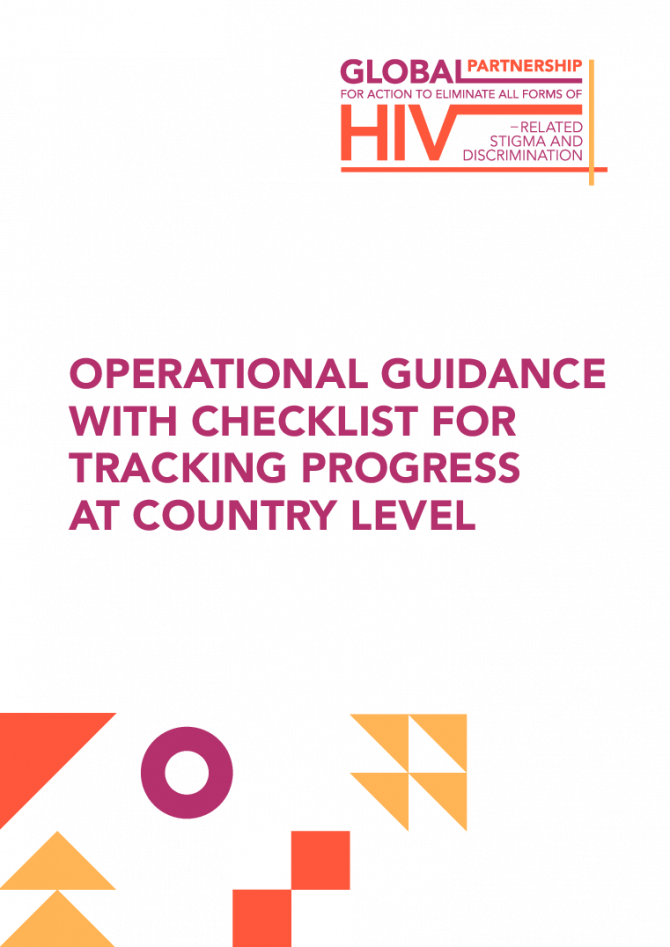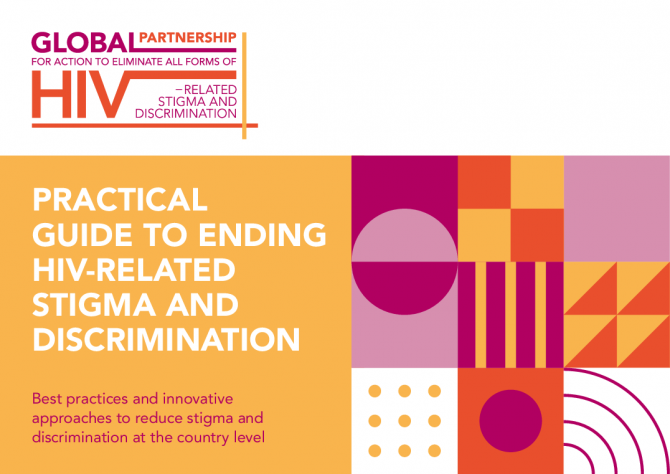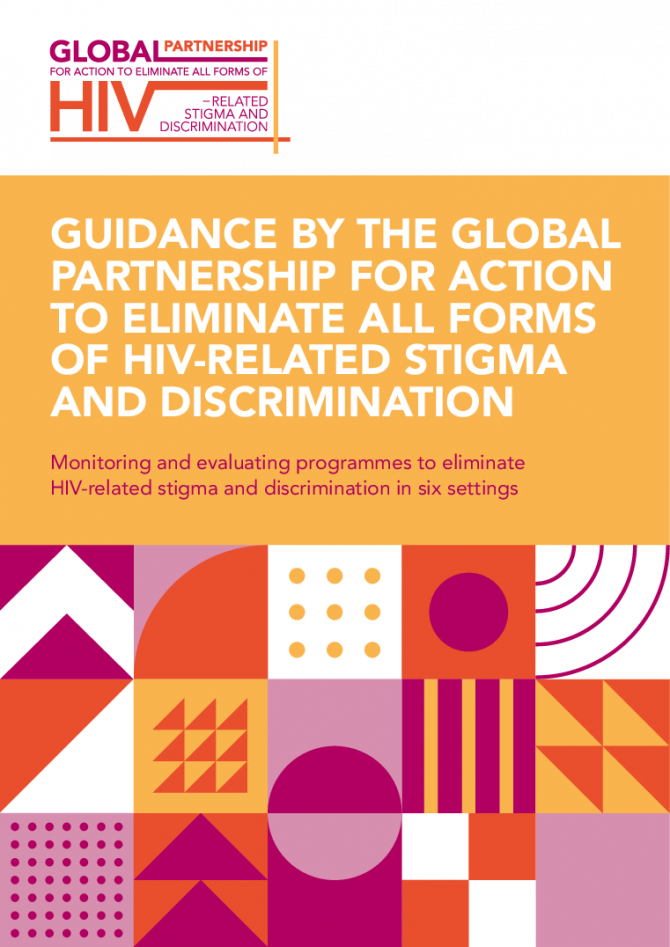

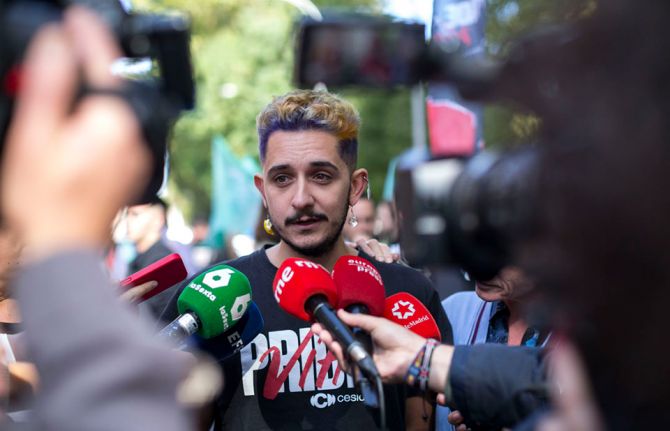
Feature Story
Groundbreaking ruling in Spain overturns discrimination based on HIV status
04 April 2025
04 April 2025 04 April 2025CESIDA—an organization that coordinates the civil society response to HIV in Spain—and the Fernando Pombo Foundation have won an important ruling that, for the first time, recognizes discrimination based on the serological status of a person living with HIV.
The significance of this case lies in the frequency in which similar situations occur to people living with HIV, who continue to face constant stigma and discrimination despite advances in HIV treatment and prevention.
"This ruling represents a significant achievement in the protection of the rights of people living with HIV against discrimination. It also marks progress within the framework of the Social Pact for Non-Discrimination and Equal Treatment in relation to HIV, as well as the Global Partnership for Action to Eliminate all Forms of HIV-related Stigma and Discrimination” said Julia del Amo, Director of the Division for the Control of HIV, STIs, Viral Hepatitis, and Tuberculosis at the Ministry of Health.
On 24 October 2022, the Directorate General of Traffic (DGT) informed a person living with HIV that their driving license renewal was reduced to half the usual duration (5 years instead of 10). The only apparent reason for this decision was that the person disclosed their HIV status and treatment during the medical examination, despite this having no impact on their ability to drive.
In response to the DGT's decision, the person living with HIV authorized CESIDA—an organization that coordinates the civil society response to HIV in Spain—to file an administrative appeal. This was possible due to the provision in Article 29 of Act 15/2022, which grants active standing to social entities under certain requirements.
After hearing evidence and arguments by the pro bono legal team from Gómez-Acebo & Pombo, who represented CESIDA, the Administrative Court ruled in favor of CESIDA and annulled the DGT’s decision, finding it discriminatory. This ruling is a groundbreaking decision in Spain.
"This ruling is a crucial step in defending the rights of people with HIV. There is still much to be done, but we are firmly committed to continuing the fight against the stigmatization and discrimination that people living with HIV face in our society," said Oliver Marcos, Secretary General of CESIDA.
The ruling is one of the first cases in which, under Act 15/2022, the standing of an association established to defend human rights is recognized to combat a situation of discrimination within the realm of Public Law.
"This case sets an important precedent in Spain as it is a pioneering ruling against discrimination based on serological status, as well as for the recognition of the active standing of social entities," said Miguel Ángel Ramiro, coordinator of the Legal Clinic at the University of Alcalá. "The admission of the claim by CESIDA, without the need for individual visibility of the person with HIV, represents a key advance in the legal approach to prevent discriminations that, although not always visible, are real,” added Ana Higuera, director of the Fundación Fernando Pombo.
“This ruling in Spain represents a significant step forward in the fight against HIV-related discrimination. It highlights the importance of protecting the rights of people living with HIV and ensuring they are not subjected to unfair treatment based on their HIV status” said Umunyana Rugege, Head of Human Rights at UNAIDS.
Region/country
Related


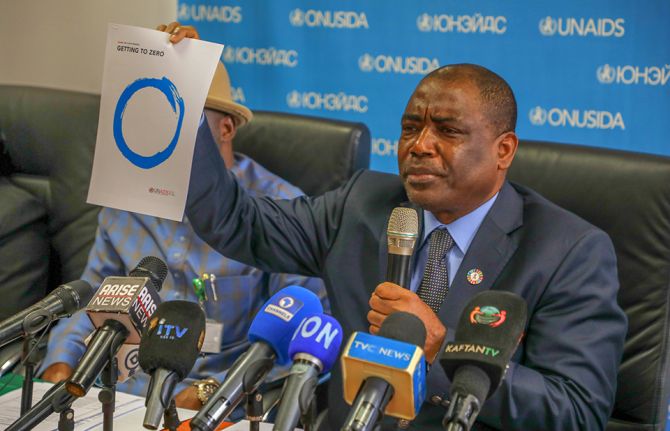
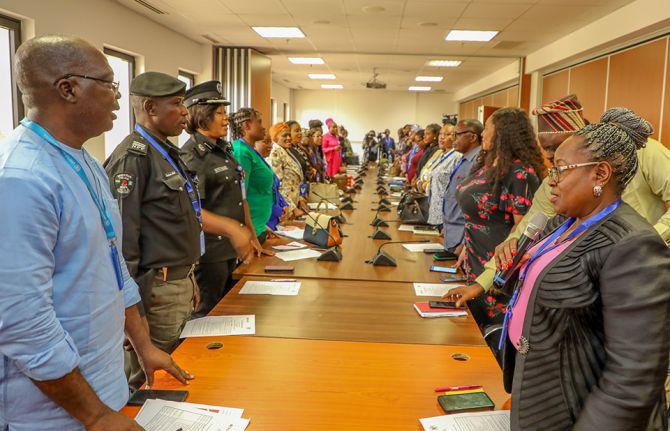
Feature Story
UNAIDS welcomes Nigeria to the Global Partnership for Action to Eliminate all Forms of HIV-Related Stigma and Discrimination
25 March 2025
25 March 2025 25 March 2025In a significant step towards combating HIV-related stigma and discrimination, Nigeria officially joined the Global Partnership for Action to Eliminate All Forms of HIV-Related Stigma and Discrimination (Global Partnership) on 5 March 2025, during the commemoration of Zero Discrimination Day. Nigeria became the 41st member of the Global Partnership, underscoring Nigeria’s commitment to uphold human rights and create an inclusive and supportive environment for people living with and affected by HIV.
“We are delighted to welcome Nigeria into the Global Partnership for Action to Eliminate All Forms of HIV-Related Stigma and Discrimination,” said Leopold Zekeng, UNAIDS Country Director for Nigeria. “This significant step is a testament of Nigeria's dedication towards fulfilling its international human rights obligations. HIV-related stigma and discrimination continue to undermine efforts towards addressing the AIDS epidemic, restricting access to prevention, testing and treatment services for those most at risk. UNAIDS is committed to work with Nigeria to dismantle the human rights and gender-related barriers that prevent people from accessing the services they need and deserve.”
As Nigeria embarks on this new chapter, the focus will be on translating commitments into tangible actions across the six settings of the Global Partnership, prioritizing in the first phase community, workplace and justice settings, including through legal and policy reforms, and community-based interventions. The government, in collaboration with communities of people living with HIV, other civil society organizations, development partners, faith and community leaders, academia, healthcare providers and other relevant stakeholders will join efforts to ensure that the commitments of the Global Partnership are met. These include monitoring progress, sharing best practices, and fostering a culture of respect and dignity for all.
“By working collaboratively with our partners, we can create a more inclusive society where everyone can thrive. We are dedicated to implementing policies and programmes that protect the rights of people living with HIV and ensure they have access to the care and support they need without fear of stigma or discrimination,” said Temitope Ilori, Director General of the National Agency for the Control of AIDS.
Nigeria’s membership of the Global Partnership marks a significant milestone in the global response to HIV. It is a bold declaration of the country’s unwavering commitment to creating a world where everyone, regardless of their HIV status, can enjoy their human rights and live with dignity.
"Joining the Global Partnership is a powerful step towards ensuring that no one is left behind in the fight against AIDS. Together, we can break down the barriers of stigma and discrimination. The Network of People Living with HIV and AIDS in Nigeria (NEPWHAN) stands united with the Global Partnership to amplify the voices of those living with HIV, ensuring that our rights are respected and our lives valued," said Abdulkadir Ibrahim, National Coordinator, NEPHWAN.
Region/country

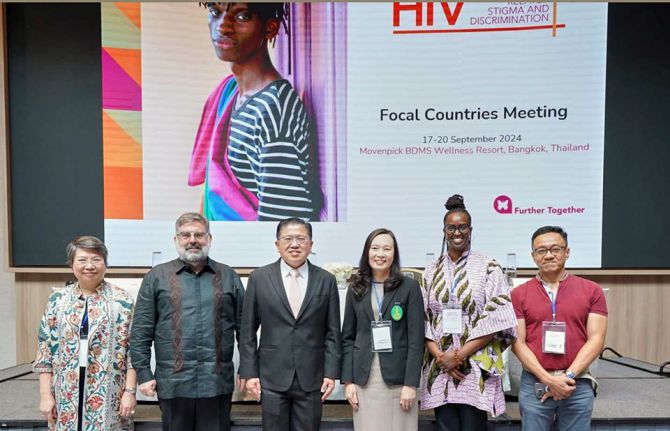
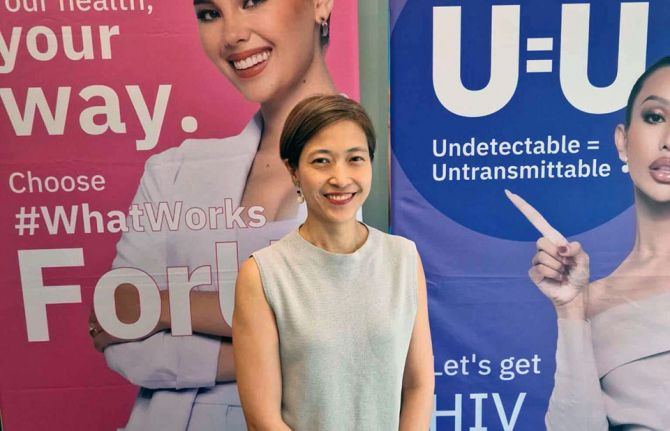
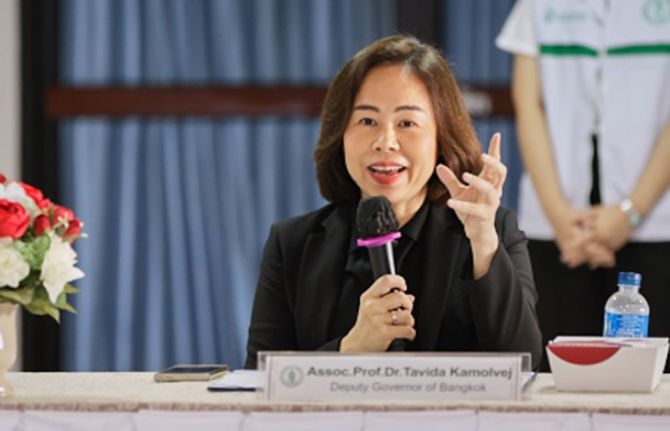
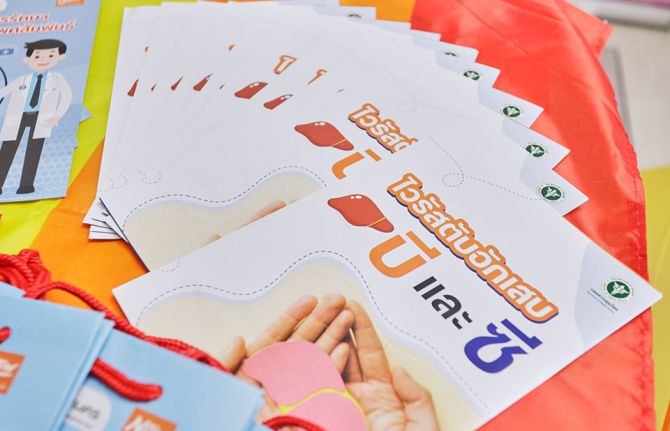
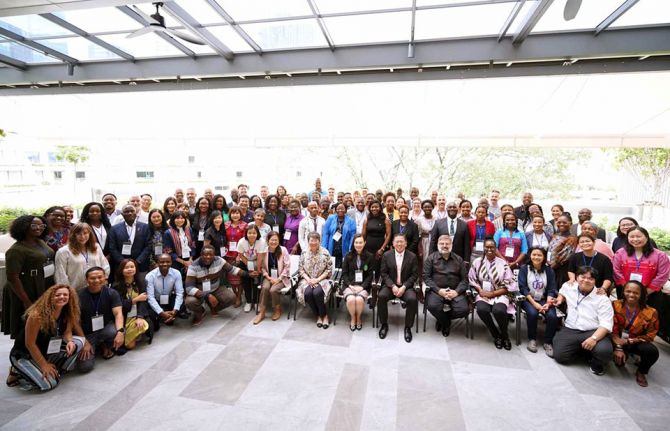
Feature Story
Can this innovation change the way people think about HIV?
16 October 2024
16 October 2024 16 October 2024In 2020, a gay Thai man living with HIV sparked controversy with a Facebook post. He was on antiretroviral therapy and had gotten lab tests to check the level of virus in his blood. Since his viral load was undetectable, he wrote, he was going to stop using condoms.
The public responded with a mix of contempt and disbelief. How could he? So selfish! So reckless! The resulting debate spilled from social media onto national radio and TV.
“There was a huge backlash,” remembered Dr Nittaya Phanuphak, the Executive Director of the Institute of HIV Research and Innovation (IHRI). She was telling the story from IHRI’s sunlit offices to teams from Botswana, Ghana, Ivory Coast, Jamaica, Mozambique, South Africa and Zambia. They’d come to Bangkok as part of a learning exchange coordinated by the Global Partnership for Action to Eliminate all Forms of HIV-related Stigma and Discrimination.
Dr Nittaya said that she and her father, Professor Praphan Phanuphak, thought it was their duty to contribute to the public discourse. While the man’s approach might have been unconventional, the science behind his statement was sound.
They would know. Professor Praphan diagnosed Thailand’s first HIV case in 1985 and dedicated his life to HIV research, service delivery and advocacy. He co-founded the Thai Red Cross AIDS Research Centre which in 2014 conducted cutting-edge research as part of the Opposites Attract Study. Done in Australia, Brazil and Thailand, that study tracked couples in which one person was HIV-negative and the other was living with HIV but had achieved an undetectable viral load through successful HIV treatment. It confirmed that after two years of unprotected sex, there were no cases of HIV transmission between more than 300 couples.
“It’s a scientific fact,” Dr Nittaya said. “For me, I felt like we really needed to do something. We cannot just wait 50 years for this knowledge to gradually seep into Thai society.”
The “knowledge” to which she refers is the concept of undetectable = untransmittable, or U=U for short. Last year the World Health Organization further endorsed the principle, stressing that when a person’s viral load is undetectable there is zero chance of sexual transmission.
“Before, HIV treatment just meant longevity,” said Pan (not his real name), a person living with HIV. “But with U=U, now it is love without fear.”
Within three to six months a person who takes their HIV treatment as prescribed and receives viral load monitoring can confirm that they have achieved an undetectable viral load. This removes the self-stigma associated with having an “infectious” disease. For Thai HIV response stakeholders, this concept can also transform the public’s attitudes about people living with HIV, making it easier for them to live full, happy lives.
“If social perceptions can be brought in line with the reality of HIV treatment, we can remove the stigma around getting an HIV test or diagnosis,” said Eamonn Murphy, Regional Director of UNAIDS Asia Pacific and Eastern Europe Central Asia. “The more supportive the society, the more people we successfully treat and the fewer new infections.”
But for the U=U strategy to be fully utilized, work must be done to dispel myths and bolster confidence in science.
According to UNAIDS Country Director for Thailand, Dr Patchara Benjarattanaporn, a key step in the national process was bringing decision-makers together with relevant stakeholders, including voices from communities.
“They considered both global and local evidence,” she explained. “Now there is consensus about the science. U=U also conveys the message ‘you=you’, affirming that all individuals are equal and that people are more than their HIV status. It emphasizes the importance of ensuring people are fully informed about their options and respecting their right to make choices about their sexual health depending on their realities.”
At the opening ceremony of the eight-country learning exchange, Dr Niti Haetanurak, Department of Disease Control Deputy Director, noted that the U=U concept is a key element of Thailand’s “all of society” strategy to address the prejudice and rights violations people living with HIV face. Thailand has a National Costed Action Plan to Eliminate all forms of HIV-related Stigma and Discrimination. The Ministry of Public Health and Sub-National Committee on AIDS Rights Promotion and Protection under National AIDS Committee coordinate the effort. Community organizations play a leading role.
During the exchange the country teams visited the Service Workers in Group (SWING) Foundation which serves sex workers and IHRI’s Tangerine Clinic which primarily serves transgender people. Both have come up with innovative approaches to ensure groups that usually find it challenging to receive healthcare at state-run facilities can get HIV and sexually transmitted infection (STI) testing and treatment in a friendly environment.
A key strategy is training members of those very communities to provide certain services themselves. They can even start clients on treatment for HIV and some other conditions the same day they are diagnosed. This approach makes it less likely for people to disappear into the shadows after diagnosis, with a high chance of infecting others and eventually becoming ill.
“This community-led health model can be applied to any health condition or population. But this does not really address stigma and discrimination. It just bypasses it by opening up alternative service delivery outlets for people who want to avoid negative experiences elsewhere,” Dr. Nittaya said. “We need to address the heart of the stigma as well. That is why we are working on using U=U as a tool to explore how we can shift attitudes.”
The Bangkok Metropolitan Administration (BMA) is integrating this concept into its work in healthcare settings and the workplace. A masterplan is in the works. One branch of the strategy will tackle employers requiring HIV testing in the pre-employment phase or targeting employees they find out are living with HIV. Another aspect of the approach is the integration U=U into all levels of HIV service delivery and ongoing healthcare worker sensitization. All staff in clinics and hospitals are trained, not just nurses and doctors.
The work doesn’t stop there, though. Describing the Bangkok society as “open”, Dr Tavida Kamolvej, Deputy Governor of Bangkok, said that the whole of society was ready for deeper conversations about inclusion and HIV. But how could these approaches be applied in other countries and cities that are not quite as tolerant or accepting, she was asked.
“If you are confronted with beliefs that might not allow open conversations about HIV, sexuality and sex, you can strategically make it about health literacy, dignity and care for all people. I think this is soft enough to make people aware about health and wellbeing,” Dr Tavida advised.
Click here to learn more about the recent eight-country learning exchange to eliminate all forms of HIV-related stigma and discrimination.
Documents
Operational guidance with checklist for tracking progress at country level — Global Partnership for Action to Eliminate All Forms of HIV-Related Stigma and Discrimination
16 June 2023
This operational guidance with a simple checklist provides participating countries with a uniform and light-touch process for tracking and reporting on actions undertaken to eliminate HIV-related stigma and discrimination under the Global Partnership. It aims to advance accountability, transparency, and effective communication of the achievements of the Global Partnership at country level. Available in Portuguese

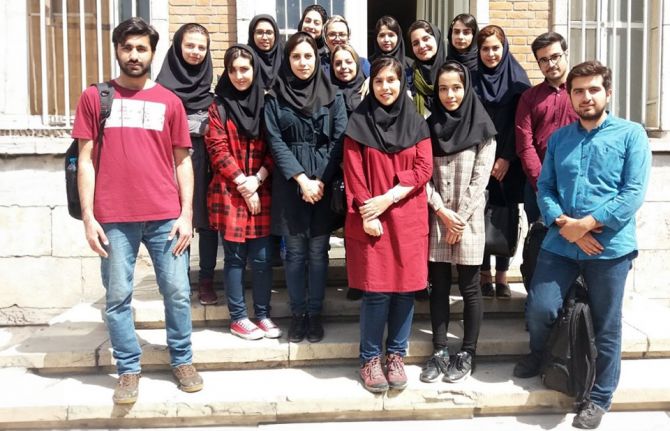
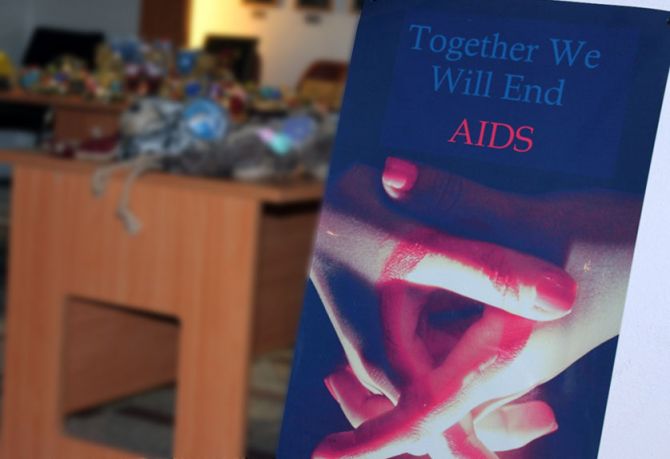
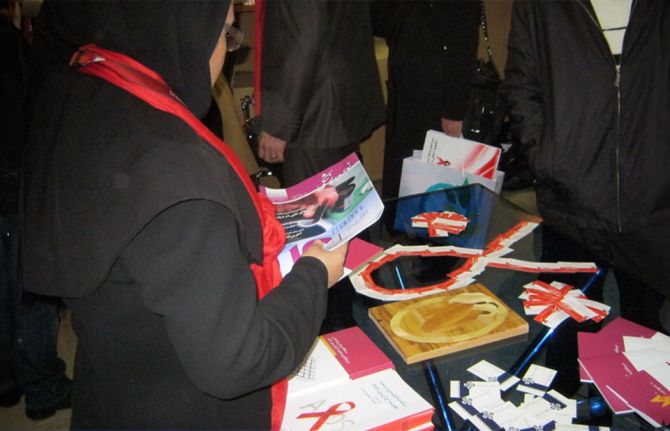
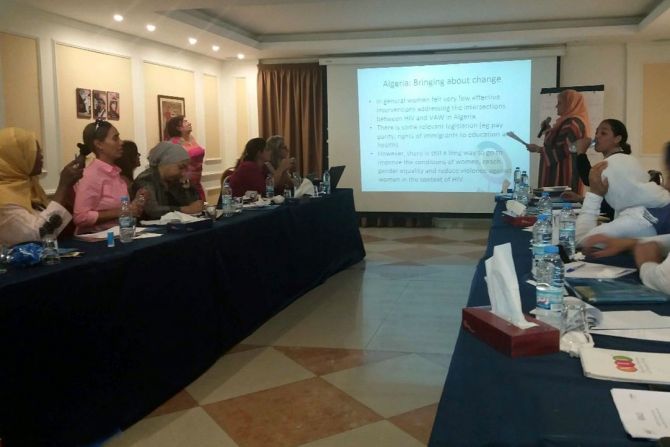
Feature Story
A transformative journey: Parisa's decades-long battle against HIV stigma and discrimination
18 July 2024
18 July 2024 18 July 2024Every pain yields a lesson, and every lesson transforms a person
Parisa's life was forever altered by HIV 25 years ago. The virus struck her family, snatching her husband's job and halting her child's education. Tragically, her husband passed away two years later, leaving Parisa to navigate the daunting landscape of loss and discrimination.
“I did not have a clue about this illness. It was, in fact, the first time I had even heard the word 'AIDS'”.
Undeterred by adversity, Parisa embarked on a relentless mission for human rights, determined to combat the pervasive stigma and discrimination surrounding HIV. Initially, she immersed herself in seminars and conferences, volunteering tirelessly at counselling centres, where she shared her own experiences to chip away at the stigma and discrimination.
“My activities in the Positive Club allowed me to broaden my knowledge and take more effective steps toward raising public awareness, reducing HIV stigma and discrimination, and helping my peers… IRCHA and UNAIDS supported me to expand my knowledge and gave me the chance to exchange my experiences with the members of Positive Clubs in and out of the country.”
Her unwavering dedication caught the attention of Dr Minoo Mohraz, the former director of the Iranian Research Centre for HIV/AIDS (IRCHA), who offered her a pivotal role in a Positive Club—a sanctuary for those grappling with similar challenges. Thus began Parisa's transformative journey, marked by a series of initiatives aimed at raising awareness, eradicating stigma and discrimination, and supporting her peers.
WHAT IS THE POSITIVE CLUB INITIATIVE? The Positive Club is a meeting place for people living with HIV, who run the club themselves, with supervision from Parisa and colleagues. At the club, people receive training in arts, and sports, and as peer educators. The Positive Club initiative was one of the successful programmes aimed at promoting positive health, dignity, and HIV prevention; it has been running for over 12 years with support from UNAIDS in collaboration with national partners and civil society organizations. Through this initiative, over 10,000 people living with HIV have been supported across 25 Positive Clubs, empowering them through training classes, workshops on HIV prevention, care and treatment, counselling sessions, and psychosocial support.
Over the years, Parisa's efforts have been nothing short of extraordinary. From managing a Positive Club in Tehran to representing people living with HIV in various influential platforms, including Iran's Country Coordinating Mechanism, its Oversight Committee, and Global Fund, she has been a relentless advocate for change.
Her initiatives have spanned diverse arenas, from radio shows and collaborations with filmmakers to training workshops for religious leaders and healthcare providers. Parisa's impact reverberates across borders, as she leverages regional platforms like MENA Rosa --the first regional network dedicated to women living with HIV in the Middle East and North Africa-- to exchange experiences and champion global efforts against HIV stigma and discrimination with a particular focus on Women living with and affected by HIV.
Amid the COVID-19 pandemic, Parisa's compassion for people living with and affected by HIV was once again evident. She mobilized support networks to provide essential supplies for Positive Club members and vulnerable families, ensuring that the crisis does not exacerbate the challenges faced by PLHIV.
Reflecting on the progress made over the last 25 years, Parisa acknowledged the remarkable strides in combating HIV-related stigma and discrimination. Efforts to eliminate HIV-related stigma and discrimination have been led by the UNAIDS Country Office for Iran, alongside national partners of the AIDS Control Programme. Notably, the first PLHIV Stigma Index study, conducted in 2010, laid the foundation for understanding the landscape of stigma in Iran. Subsequently, a second PLHIV Stigma Index study, was carried out by the network of PLHIV in collaboration with UNAIDS, Global Network of PLHIV (GNP+), International Community of Women Living with HIV (ICW), Johns Hopkins Medical University (JHMU), National AIDS Programme (NAP), and with financial support from Global Fund to Fight AIDS, Tuberculosis and Malaria (GFATM) /UNDP. Parisa played an important role in implementing the Stigma Index 2.0 which provided updated insights.
COMPARING OF BOTH OF IRAN’S STIGMA INDEX STUDIES A comparison between the two Stigma Index studies conducted ten years apart, using updated methodologies, revealed promising changes. The prevalence of self-stigma among PLHIV decreased significantly from 80% to 40%. Similarly, the percentage of PLHIV refraining from seeking medical help has decreased from 80% to 19%, underscoring improved accessibility to healthcare services and increased health-seeking behaviour among affected individuals. Overall, reports of stigma and discrimination have decreased from 71% to 47%, reflecting tangible improvements in societal attitudes to HIV.
Parisa reflects on these notable shifts in HIV-related Stigma observed between the two studies. In the initial Stigma Index conducted a decade ago, internal stigma was predominant among PLHIV, followed by societal and healthcare provider stigma. However, in the subsequent study, internal stigma was significantly reduced, while stigma and discrimination from healthcare providers emerged as the most prevalent issue. The improvement observed in internal stigma among PLHIV could be partly attributed to the work of the empowering Positive Clubs. Additionally, this improvement highlights the importance of ongoing efforts to address stigma and discrimination comprehensively, with a particular focus on healthcare settings. By acknowledging these shifts and persisting in their efforts, UNAIDS Iran, Parisa and her colleagues remain committed to building a future free from the burdens of HIV-related stigma and discrimination.
Through her nearly two decades of hotline counselling experience, Parisa has witnessed a shift in attitudes, with increased awareness and openness surrounding HIV discourse.
She credits grassroots campaigns and community-led initiatives for driving this transformation, paving the way for a more inclusive society.
“Positive Clubs have been played a very effective role in empowerment and phycological support to the members and reducing stigma and discrimination.”
In 2019, Iran joined the Global Partnership to Eliminate all forms of HIV-related stigma and discrimination, prioritizing a strong emphasis on interventions within communities, emergency/humanitarian settings, and healthcare facilities. With support from UNAIDS, protocols and training packages were developed to address stigma and discrimination in these critical areas. These efforts were carried out in close collaboration with national partners and civil society organizations, with training workshops being a key component of the initiative.
OVERVIEW OF GLOBAL PARTNERSHIP The Global Partnership for action to eliminate all forms of HIV-related stigma and discrimination is a critical vehicle for action to mobilise all countries to reach the political declaration and Global AIDS Strategy targets. It leverages partnerships to enhance coordination of interventions and funding; it provides knowledge and evidence-guided technical support; and increases accountability mechanisms and community leadership.
Parisa was actively involved in the implementation phase of these projects. Her contributions have been instrumental in advancing the work to eradicate HIV-related stigma and discrimination across humanitarian, healthcare, and community settings.
However, Parisa acknowledges the persistent challenges faced by PLHIV, from sporadic bouts of self-doubt to occasional rejections and the lingering shadows of depression and fear. Despite these hurdles, she remains steadfast in her belief that we can achieve a future free from stigma and discrimination.
As Parisa continues her tireless advocacy, her journey stands as a testament to the resilience of the human spirit and the power of collective action in fostering a world where every individual, regardless of their HIV status, is embraced with dignity and compassion.
“Of course, people living with HIV still experience stigma and discrimination at different stages of their lives but have a hope for a day free of stigma and discrimination.”
UNAIDS has played a pivotal role in the establishment and sustained operation of Positive Clubs for over a decade, catalyzing transformative changes in the lives of people living with HIV such as Parisa and in the fight against stigma and discrimination. Nonetheless, the journey towards eliminating stigma and discrimination remains unfinished, albeit considerably smoother and more steadfast with the collaborative efforts and political commitment of initiatives such as the Global Partnership.
“Together, we continue to pave the way towards a future free from the burdens of stigma and discrimination for all individuals living with and affected by HIV.”
Documents
Practical guide to ending HIV-related stigma and discrimination — Best practices and innovative approaches to reduce stigma and discrimination at the country level
26 September 2023
This guide provides information on how to apply best practices to reduce HIV-related stigma and discrimination to the country context. This document is also available in Portuguese.
Documents
Guidance by the Global Partnership for Action to Eliminate All Forms of HIV-Related Stigma and Discrimination — Monitoring and evaluating programmes to eliminate HIV-related stigma and discrimination in six settings
25 September 2023
In 2020, the Global Partnership launched a guidance document that reviewed the latest evidence on effective programmes to eliminate HIV-related stigma and discrimination in the six settings of the Global Partnership. The present guidance is a companion to the evidence guidance focused on monitoring and evaluation, with the goal of supporting programme planners, implementers and managers at government agencies and nongovernmental and community-based organizations to understand the outputs and outcomes of their programmes and inform programme improvement and scale-up. This document is also available in Portuguese.

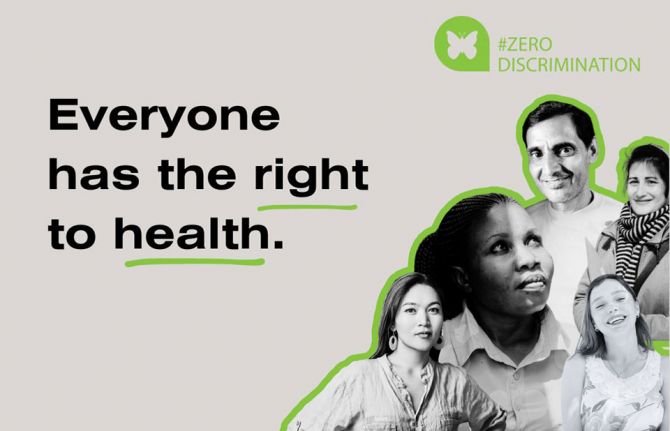
Press Statement
On the 10th anniversary of Zero Discrimination Day UNAIDS calls for the protection of human rights as a path to protecting health for all
27 February 2024 27 February 2024GENEVA, 27 February 2024—Zero Discrimination Day was established by UNAIDS ten years ago to advance equality and fairness for everyone regardless of gender, age, sexuality, ethnicity or HIV status. However, progress is in peril.
Attacks on the rights of women and girls, of LGBTQ+ people, and of other marginalized communities are on the rise. And when laws, policies, practices or norms enshrine punishment, discrimination or stigma for people because they are women, or are LGBTQ+, or are migrants, or sex workers, or use drugs, the results lead to failing public health as these communities are pushed away from vital health and social services.
“The attacks on rights are a threat to freedom and democracy and are harmful to health. Stigma and discrimination obstruct HIV prevention, testing, treatment and care, and hold back progress towards ending AIDS by 2030,” said Winnie Byanyima, Executive Director of UNAIDS. “It is only by protecting everyone’s rights that we can protect everyone’s health.”
There has been progress. At the start of the AIDS pandemic 40 years ago, two thirds of countries in the world criminalized LGBTQ+ people, today two-thirds of countries do not.
38 countries around the world have pledged to end HIV-related stigma and discrimination and today 50 million more girls are in school than in 2015.
To continue this progress UNAIDS urges support for women’s movements and movements for the rights of LGBTQ+ people, for racial justice, for economic justice, for climate justice, and for peace. As communities across the world stand up for rights, the United Nations is not only on their side but by their side.
On this Zero Discrimination Day (1 March), and across the whole month of March, events and activities will remind the world of this vital lesson and call to action: by protecting everyone’s rights, we can protect everyone’s health.
“Through upholding rights for all, we will be able to achieve the Sustainable Development Goals, and to secure a safer, fairer, kinder, and happier world – for everyone,” added Ms Byanyima.
UNAIDS
The Joint United Nations Programme on HIV/AIDS (UNAIDS) leads and inspires the world to achieve its shared vision of zero new HIV infections, zero discrimination and zero AIDS-related deaths. UNAIDS unites the efforts of 11 UN organizations—UNHCR, UNICEF, WFP, UNDP, UNFPA, UNODC, UN Women, ILO, UNESCO, WHO and the World Bank—and works closely with global and national partners towards ending the AIDS epidemic by 2030 as part of the Sustainable Development Goals. Learn more at unaids.org and connect with us on Facebook, Twitter, Instagram and YouTube.
Watch: By protecting everyone’s rights, we can protect everyone’s health
Winnie Byanyima on Zero Discrimination Day
Watch: Rights for All means Health for All

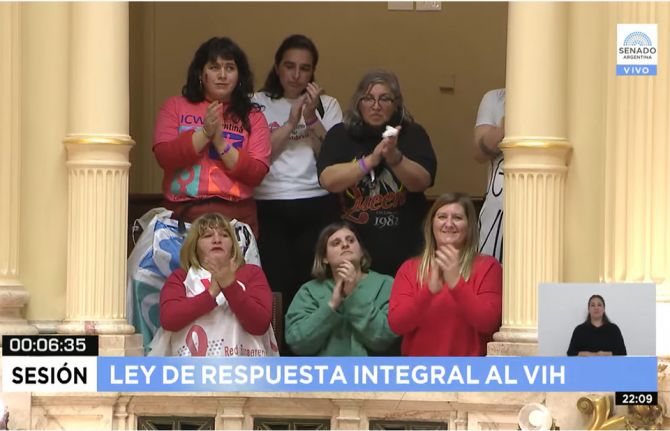

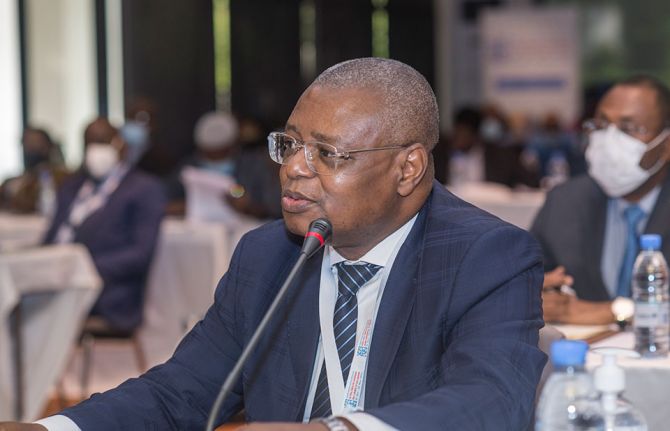
Feature Story
Countries take practical steps forward towards eliminating discrimination
09 February 2024
09 February 2024 09 February 2024Countries from across the world who have taken practical steps forward towards eliminating discrimination are showing what is possible, UNAIDS has said.
The countries are members of the Global Partnership for Action to Eliminate all Forms of HIV-Related Stigma and Discrimination, which have prioritized and pledged to accelerate the removal of stigmatizing and discriminatory practices, policies and laws across six settings: community, health, justice, education, workplace, and emergency/humanitarian. Recent progress that was made by members of the Global Partnership included:
- In the Central African Republic, the law on the rights of people living with HIV/AIDS was revised with a focus on social protection, opening new opportunities for people living with HIV to access enhanced support.
- In Argentina, the National Law for Comprehensive Response to HIV, STIs and Tuberculosis committed that care and treatment be provided without discrimination.
- In Kazakhstan, the government increased domestic funding to sustain a successful community-led programme for shelter and support for women living with HIV who had been subjected to violence.
- In Ghana, a strong partnership between the government and the community enabled mothers living with HIV and caregivers of HIV-exposed infants and children to benefit from targeted interventions that foster their and their children’s well-being, leading to improved adherence to treatment and linkage to care.
- In Thailand, a national Code of Conduct on HIV prevention and management in the workplace was adopted, and both government and the private sector committed to review HIV policies in line with the new Code of Conduct.
- In Iran, the Ministry of Health issued a bylaw to tackle the stigma and discrimination faced by people living with and affected by HIV. As a result, a protocol on elimination of stigma and discrimination in health care settings was developed to advance access to HIV services without discrimination, including strengthening the referral system.
“The practical steps forward which have been taken by members of the Global Partnership provide hope through action,” said UNAIDS Executive Director Winnie Byanyima. “They show what is possible. They show how it is through protecting the rights of every person that we can protect the health of every person. Progress on rights can power progress towards the end of AIDS.”
38 countries have joined the Global Partnership for Action to Eliminate all Forms of HIV-Related Stigma and Discrimination, and more have expressed interest in joining. More information on the Global Partnership can be found here: https://www.unaids.org/en/topic/global-partnership-discrimination
On March 1st the world will mark the tenth anniversary of Zero Discrimination Day. More information on Zero Discrimination Day can be found here: https://www.unaids.org/en/2024-zero-discrimination-day







